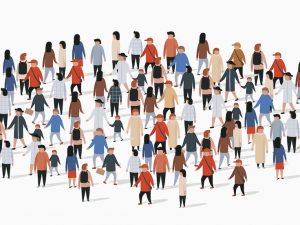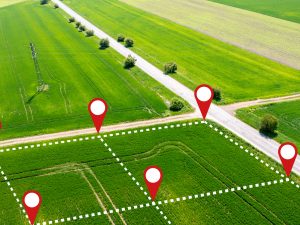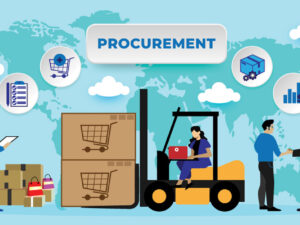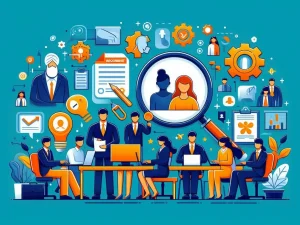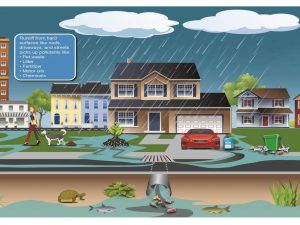Labour & Working Conditions
The World Bank Environmental and Social Framework (ESSF) is bank policy that outlined the World Bank’s commitment to sustainable development. ...
Show more
- Description
- Curriculum
- Reviews

Outline
- Overview of World Bank Environmental and Social Framework (ESSF).
- Labour and Working Conditions
- Scope of Application
- Major Legislations on Labour and Employment in Nigeria.
- Requirements for Employers.
- Equal Opportunities and Non Discrimination.
- Workers Organization and Grievance Mechanism
- Workers Protection
- Occupational Safety and Health
SESSION 1
-
1TRAINING MANUAL
-
2INTRODUCTION TO MAJOR CONCEPTS IN LABOUR AND WORKING CONDITIONS
-
3Overview of World Bank Environment and Social Framework
-
4Labour and Working Conditions
-
5Labour and Working Conditions contd
-
6Scope of Application
-
7Major Legislations on Labour and Employment in Nigeria
-
8Major Legislations on Labour and Employment in Nigeria contd
-
9Major Legislations on Labour and Employment in Nigeria contd
-
10Working Conditions and Management of Worker Relationships
-
11Terms and Conditions of Employment
-
12Terms and Conditions of Employment Contd.
-
13Terms and Conditions of Employment-
-
14Terms and Conditions of Employment-
-
15CASE STUDY
-
16Terms and Conditions of Employment
-
17Terms and Conditions of Employment
-
18Terms and Conditions of Employment-
-
19Terms and Conditions of Employment-
-
20CASE STUDY 2
-
21Terms and Conditions of Employment
-
22Working Conditions and Management of Worker Relationships
-
23Equal Opportunity contd
-
24Working Conditions and Management of Worker Relationships
SESSION 2
SESSION 3
-
30LABOUR AND GENDER EQUALITY IN THE WORKPLACE.
-
31INTRODUCTION:
-
32ELEMENTS OF WORKPLACE EQUALITY
-
33GENDER EQUALITY AND DECENT WORK
-
34CAUSES OF WORKPLACE GENDER INEQUALITY
-
35ILO CONVENTIONS
-
36NATIONAL LAWS ON GENDER EQUALITY.
-
37Elements of Workplace Gender Equality 1
-
38Elements of Workplace Gender Equality 2
-
39Elements of Workplace Gender Equality 3
-
40Elements of Workplace Gender Equality 4
-
41Elements of Workplace Gender Equality 5
SESSION 4
-
42CHILD LABOUR IN FOCUS
-
43INTRODUCTION:
-
44What is child labour?
-
45CONTD
-
46CONTD
-
47KEY INTERNATIONAL LABOUR STANDARDS (ILS)
-
48OTHER LAWS AND REGULATIONS RELATED TO CHILD LABOUR
-
49CONT'D
-
50GUIDANCE FROM INTERNATIONAL LABOUR STANDARDS (ILS)
-
51Minimum Age for Admission to Employment Convention, 1973 (No. 138).
-
52MINIMUM AGE FOR ADMISSION TO EMPLOYMENT
-
53CHILD LABOUR: A CONCERN IN 1919
-
54THE WORST FORMS OF CHILD LABOUR
-
55THE WORST FORMS OF CHILD LABOUR
-
56THE WORST FORMS OF CHILD LABOUR
-
57THE WORST FORMS OF CHILD LABOUR
-
58The Organised Labour in Nigeria and the ILO’s Perspectives
-
59Learning Objectives
-
60Introduction
-
61The Concept of Labour
-
62Labour Management Principles
-
63The Structure of Organised Labour in Nigeria
-
64The Strengths & Weaknesses of Organised Labour
-
65The ILO’s Perspectives on Labour Standards
-
66Conclusion
-
67References
SESSION 5
-
68Case Studies in Collective Bargaining: Theories and Practical Exercises
-
69Learning Objectives
-
70Introduction
-
71The Concept of Collective Bargaining
-
72Theories of Collective Bargaining
-
73Cases of Collective Bargaining in the Public Sector
-
74Cases of Collective Bargaining in the Private Sector
-
75The Challenges of Collective Bargaining in Nigeria
-
76Conclusion
-
77References
SESSION 6
-
78Health and Safety in the Workplace
-
79Presentation Outline
-
80Learning Objectives
-
81Introduction
-
82The Concept of Health & Safety in the Workplace
-
83Classification of OHS Issues
-
84Occupational Health and Safety Procedures
-
85The ILO’s Framework on OHS
-
86Occupational Health and Safety Policies
-
87Occupational Health and Safety Management
-
88Conclusion
-
89References
-
90Overview of Labour Disputes & Arbitration
-
91The Dynamics of labour disputes
-
92The Dynamics of labour disputes
-
93The Nature of Conflict
-
94Typology, Dynamics, and Evolution of Conflicts
-
95Causes and Typology of Conflicts
-
96Assessment of the Conflict
-
97Focuses for Conflict Management
-
98Conflict Management Checklist
-
99Negotiating Techniques
-
100Phases of the Negotiation Process
-
101Conflict Resolution Process and Conciliation / Mediation Services
-
102Mediation Services (hybrid systems)
-
103Thank you for your attention.
SESSION 7
-
104Historical Overview of Nigeria/International Labour Laws
-
105Sources of Nigerian labour Laws
-
106Formation of a contract of Employment
-
107Adjudication of labour related matters
-
108HISTORICAL OVERVIEW OF LABOUR LAW FROM A GLOBAL PERSPECTIVE.
-
109The International Labor Organization (ILO)
-
110THE EARLY YEARS OF ILO
-
111Conclusion
SESSION 8
-
112Grievance Redress Mechanism
-
113Definition and Uses: Grievance Mechanisms
-
114Aims of GRM
-
115Writing objectives of the GRM: Guides
-
116Who Uses GM
-
117Key Issues in Setting Up GM
-
118Setting Up GM
-
119Points to Consider: Scale the mechanism to project needs
-
120Points to consider: Writing and Publicising
-
121Points to consider: Third Parties
-
122Points to Consider: Accessibility
-
123Points to consider: Response time
-
124Points to consider: Access to Legal System
-
125Steps in Designing GRM
-
126Evaluating the Complaint to GM
-
127Questions to ask in evaluation
-
128Activity
-
129Challenges of Working conditions in a Pandemic
-
130Introduction
-
131Relations throughout the pandemic
-
132Employers and Business Membership Organisations
-
133Reprioritisation of issues in labour relations
-
134Recommendations for public sector engaged in Collective Bargaining during Covid 19
-
135The rise in Telework
-
136Prospects for the Future
-
137References
SESSION 9
SESSION 10
-
146Review of Labour & Working Conditions –Future trends
-
147Exploring the World of Work
-
148What is Work?
-
149Impact on Lifestyle
-
150Why People Work
-
151WHAT YOU’LL LEARN
-
152The Changing Workplace
-
153The Global Economy and the Job Market
-
154Impact on Today’s Workers
-
155Today’s Workplace
-
156The future Job Outlook
Please, login to leave a review


